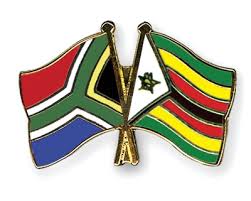
JOHANNESBURG – The National Union of Metalworkers of South Africa (Numsa) on Sunday called off its strike in the vehicle parts sector, accusing German car giant BMW of “blackmail” and saying: “In China and Zimbabwe they would never be allowed to hold the country to ransom.”
Numsa said its members were set to return to work yesterday, ending a strike that has cost the sector about R20bn, slashed exports by 75% and dealt another blow to South Africa’s already bruised image among foreign investors.
The union, which represents 70 000 of the sector’s 300 000 unionised workers, settled for a 10% increase in the first year of the agreement, followed by increases of 8% in the next two years.
It had originally demanded 10% increases every year for three consecutive years.
While Numsa also failed to force employers to halt labour broking in its workplaces, it said: “Numsa’s national leadership engaged with government on the issue of labour brooking and equal pay for equal work and we were assured that the legislation would be passed before year-end.”
Numsa was unmoved by claims that its strike action had further hurt South Africa’s ailing factory sector and soured investor sentiment.
It said the treasury’s welcoming of the International Monetary Fund’s call for a more flexible labour-market regime vindicated its argument that “our African National Congress government is pursuing neoliberal and anti-working class policies”.
“We refuse to be blackmailed . . . the strikes we have had are not extraordinary, they were normal,” Numsa general-secretary Irvin Jim, said.
- Chamisa under fire over US$120K donation
- Mavhunga puts DeMbare into Chibuku quarterfinals
- Pension funds bet on Cabora Bassa oilfields
- Councils defy govt fire tender directive
Keep Reading
Instead, the union launched a scathing verbal assault on BMW, which criticised South Africa’s unions last week and warned that it was putting its plans to expand capacity in South Africa on hold.
Numsa said it would “refuse to be blackmailed by BMW, the National Association of Automobile Manufacturers of South Africa or any other neoliberal analyst/economists for our right to strike”.
“Chief executive officers of car manufacturers showed no leadership whatsoever during the auto and motor industry strikes,” it said.
“The likes of BMW must remember that it is taxpayers’ money that subsidises the profit they so generously make in South Africa.”
Numsa said it would “seek a formal meeting with the leadership of BMW to discuss its threats to the South African economy”.
BMW spokesman Guy Kilfoil reiterated BMW’s commitment to South Africa, but said the company had lost 13 000 units of production, which could not be recovered.
Efficient group chief economist Dawie Roodt said the end to the strike was “good news”, but that it would be impossible to quantify the true damage caused by the industrial action.
“In previous strikes, investors were annoyed, but we have picked up a change in the mood of investors. BMW is a good example. But I don’t think we can really evaluate damage to the economy because we don’t know what the economy would have looked like.
“South Africa has been getting negative attention since Marikana, but this strike is showing labour unrest in South Africa may be the rule instead of the exception,” Roodt said.
He said South Africa could not be compared as an investment destination to China or Zimbabwe.
“Zimbabwe is a totally different example. Profit margins are larger because of risks. You can’t compare South Africa to Zimbabwe or China. The Chinese are much more productive than we are. Hypothetically, if you wanted to compare South Africa to Zimbabwe, then we have to at least halve wages to get the same profit margins.”
Numsa Western Cape secretary Karl Cloete rejected what he called “blackmail” by BMW.
“They (BMW) receive taxpayers’ money in the form of a subsidy, which is an incentive scheme to attract car manufacturers to our country. If they go to China, the Chinese Communist Party takes 51% in that company. If they go next door to Zimbabwe, Uncle Bob will take 51% on the indigenisation programme,” he said.
Jim said the strike had been “difficult” for the union as employers had refused to accede to its demands for a ban on labour brokers and for “equal pay for work of equal value”.
— Business Day










